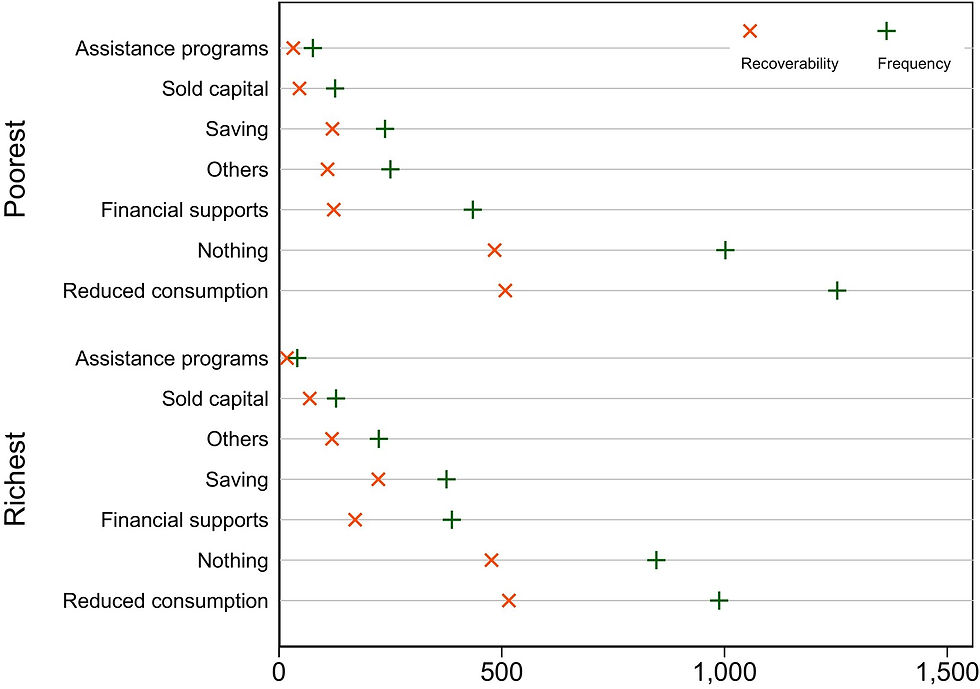Latest RESEARCH ARTICLE on vulnerability to poverty in rural Vietnam by Associate Professor Võ Tất Thắng, Director of HAPRI.
The study examines rural household vulnerability in Vietnam using panel data from 2008–2016. It highlights the impact of idiosyncratic shocks, inadequate formal insurance, and coping strategies like reducing consumption and asset depletion. Recovery is influenced by savings, public programs, and borrowing, with wealthier households benefiting more. Policy implications include addressing health-related vulnerabilities, expanding insurance coverage, promoting income diversification, and enhancing financial access.
The research underscores the limited effectiveness of formal insurance and credit access in mitigating idiosyncratic shocks faced by rural households. Coping strategies such as reducing food consumption, utilizing savings, borrowing, and selling assets play a crucial role in helping households navigate through adverse events. However, the study reveals variations in the effectiveness of these strategies, with savings proving more beneficial for wealthier households in facilitating recovery.
Moreover, the study emphasizes the need for public support to help rural households cope with shocks and improve their recovery prospects. It suggests that expanding health insurance coverage could be a pivotal step in enhancing the resilience of these households. Additionally, promoting income diversification and improving access to financial services are crucial policy measures to reduce vulnerability among rural populations.
By supporting economic growth initiatives such as infrastructure development and agricultural support, policymakers can contribute to building a more robust rural economy that is better equipped to withstand shocks. Public support programs and safety nets are essential for disadvantaged households in rural areas, providing a crucial lifeline during times of crisis. Investing in education and vocational training can reduce vulnerability by equipping individuals with the skills needed to adapt to changing circumstances.
Furthermore, promoting risk-sharing mechanisms and improving the effectiveness of existing insurance schemes are essential steps toward ensuring sustainable recovery and reducing vulnerability in rural communities. The study underscores the complex dynamics of rural household vulnerability in Vietnam and the multifaceted strategies required to address it effectively. By focusing on enhancing health insurance coverage, promoting income diversification, expanding financial access, and providing targeted public support, policymakers can make significant strides in reducing vulnerability and fostering resilience among rural populations.
Emphasizing education, vocational training, and risk-sharing mechanisms can further contribute to sustainable recovery and long-term economic stability in rural areas. The study's findings provide valuable insights for policymakers and stakeholders seeking to address rural household vulnerability and promote inclusive growth and development in Vietnam.
KEYWORDS:
Adverse shock
Coping
Poverty
Vietnam
Vulnerability
Citation:
Thang T. Vo (2024), "Adverse shocks, vulnerability, and coping by rural households in Vietnam", "Development Policy Review", DOI: 10.1111/dpr.12768





Comments